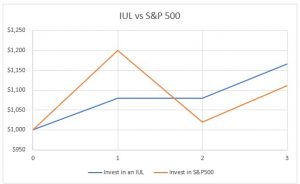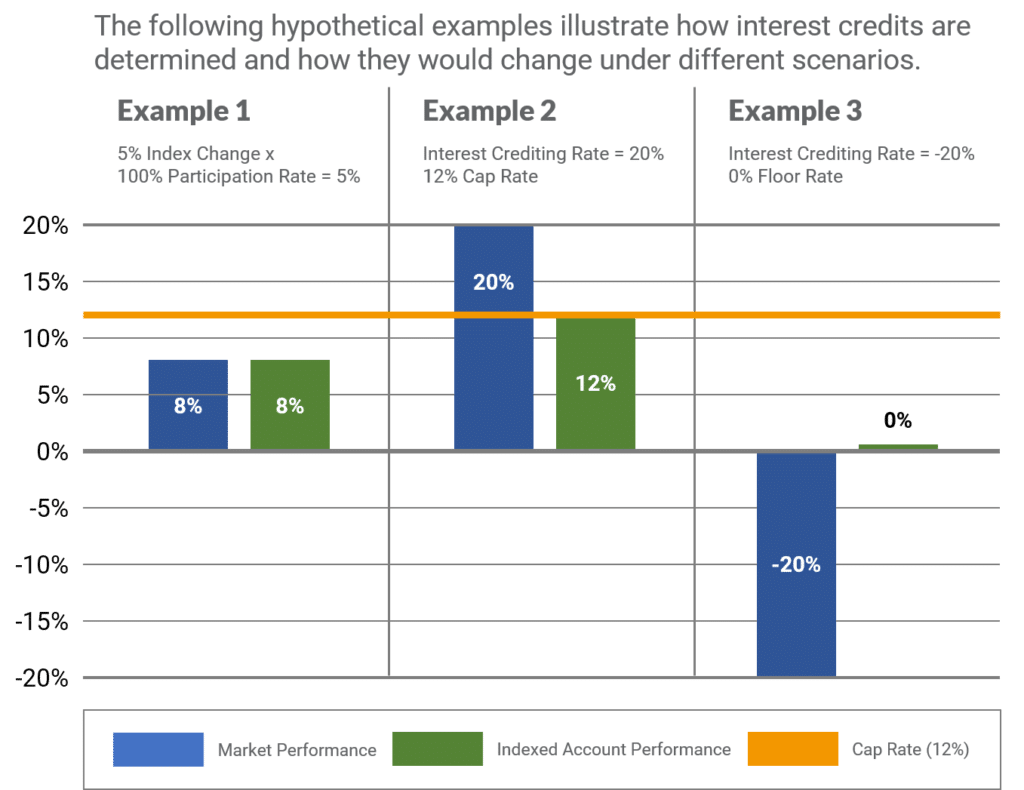All Categories
Featured
Table of Contents
1), frequently in an attempt to beat their classification averages. This is a straw male debate, and one IUL folks like to make. Do they contrast the IUL to something like the Vanguard Overall Securities Market Fund Admiral Shares with no tons, an expense proportion (ER) of 5 basis factors, a turnover ratio of 4.3%, and a phenomenal tax-efficient document of circulations? No, they contrast it to some awful proactively managed fund with an 8% lots, a 2% ER, an 80% turnover ratio, and a dreadful record of short-term resources gain distributions.
Mutual funds typically make annual taxed circulations to fund owners, also when the worth of their fund has actually dropped in worth. Shared funds not only need income coverage (and the resulting yearly taxation) when the shared fund is increasing in value, however can additionally impose earnings tax obligations in a year when the fund has dropped in worth.
You can tax-manage the fund, collecting losses and gains in order to decrease taxed distributions to the investors, but that isn't somehow going to alter the reported return of the fund. The ownership of mutual funds might call for the common fund proprietor to pay estimated taxes (max newyork life insurance policy surrender form).
:max_bytes(150000):strip_icc()/dotdash-comparing-iul-insurance-iras-and-401ks-Final-71f14693e37d4fb1b0736112179802b5.jpg)
IULs are easy to place to ensure that, at the owner's death, the recipient is not subject to either earnings or inheritance tax. The same tax decrease strategies do not work virtually as well with common funds. There are numerous, usually expensive, tax obligation catches connected with the timed trading of shared fund shares, catches that do not relate to indexed life Insurance policy.
Possibilities aren't really high that you're going to be subject to the AMT as a result of your common fund distributions if you aren't without them. The rest of this one is half-truths at ideal. While it is true that there is no revenue tax obligation due to your successors when they inherit the earnings of your IUL plan, it is additionally real that there is no earnings tax obligation due to your beneficiaries when they acquire a common fund in a taxable account from you.
Variable Universal Life Insurance Problems
There are better ways to prevent estate tax issues than acquiring financial investments with low returns. Mutual funds may create revenue taxes of Social Protection benefits.

The growth within the IUL is tax-deferred and might be taken as free of tax income through finances. The plan proprietor (vs. the shared fund supervisor) is in control of his or her reportable income, hence enabling them to minimize or also eliminate the taxation of their Social Safety and security advantages. This is excellent.
Here's an additional minimal problem. It holds true if you purchase a common fund for state $10 per share prior to the distribution day, and it distributes a $0.50 circulation, you are then mosting likely to owe tax obligations (possibly 7-10 cents per share) although that you haven't yet had any type of gains.
In the end, it's really concerning the after-tax return, not how much you pay in taxes. You're likewise probably going to have more cash after paying those tax obligations. The record-keeping requirements for having shared funds are considerably extra complicated.
With an IUL, one's documents are maintained by the insurer, duplicates of annual statements are mailed to the owner, and distributions (if any kind of) are amounted to and reported at year end. This set is also sort of silly. Certainly you ought to keep your tax obligation records in situation of an audit.
Guaranteed Universal Life Quotes
Barely a reason to acquire life insurance policy. Common funds are typically component of a decedent's probated estate.
On top of that, they are subject to the hold-ups and expenses of probate. The proceeds of the IUL policy, on the other hand, is constantly a non-probate circulation that passes beyond probate directly to one's named beneficiaries, and is therefore exempt to one's posthumous lenders, unwanted public disclosure, or comparable hold-ups and expenses.
We covered this set under # 7, yet just to recap, if you have a taxable common fund account, you must place it in a revocable trust fund (and even less complicated, make use of the Transfer on Fatality designation) in order to avoid probate. Medicaid disqualification and lifetime earnings. An IUL can provide their owners with a stream of revenue for their whole life time, no matter of how much time they live.

This is helpful when arranging one's affairs, and converting possessions to revenue prior to an assisted living facility confinement. Common funds can not be converted in a similar manner, and are often thought about countable Medicaid properties. This is an additional foolish one advocating that inadequate individuals (you understand, the ones who require Medicaid, a government program for the inadequate, to spend for their nursing home) need to use IUL as opposed to common funds.
Single Premium Universal Life Insurance Policy
And life insurance policy looks awful when compared fairly versus a retirement account. Second, people that have cash to purchase IUL above and past their pension are mosting likely to need to be awful at handling money in order to ever get Medicaid to spend for their nursing home expenses.
Chronic and terminal illness motorcyclist. All plans will enable a proprietor's simple accessibility to cash from their plan, commonly waiving any kind of abandonment penalties when such individuals endure a significant illness, need at-home treatment, or come to be confined to an assisted living home. Mutual funds do not supply a similar waiver when contingent deferred sales fees still apply to a common fund account whose proprietor requires to sell some shares to fund the prices of such a stay.
Best Iul Policies
You obtain to pay even more for that benefit (biker) with an insurance policy. Indexed universal life insurance coverage gives fatality benefits to the beneficiaries of the IUL owners, and neither the owner neither the beneficiary can ever shed money due to a down market.
Currently, ask yourself, do you in fact need or desire a death advantage? I certainly do not need one after I get to financial independence. Do I desire one? I suppose if it were low-cost sufficient. Of course, it isn't economical. Generally, a purchaser of life insurance policy spends for the real expense of the life insurance policy benefit, plus the costs of the plan, plus the profits of the insurance policy business.
Universal Way Insurance
I'm not entirely certain why Mr. Morais included the entire "you can't shed cash" once more here as it was covered rather well in # 1. He simply intended to repeat the very best selling point for these points I suppose. Once more, you don't shed small bucks, yet you can shed genuine dollars, as well as face major chance cost because of reduced returns.

An indexed universal life insurance coverage policy proprietor might trade their policy for an entirely various policy without activating income taxes. A common fund proprietor can stagnate funds from one mutual fund company to one more without offering his shares at the former (hence causing a taxed occasion), and repurchasing new shares at the last, typically subject to sales costs at both.
While it holds true that you can exchange one insurance coverage plan for one more, the factor that people do this is that the first one is such a horrible policy that even after purchasing a new one and undergoing the very early, adverse return years, you'll still appear in advance. If they were marketed the ideal plan the initial time, they should not have any kind of wish to ever trade it and experience the early, negative return years once more.
Latest Posts
North American Universal Life Insurance
Best Universal Life Insurance
Variable Universal Life Insurance Quotes